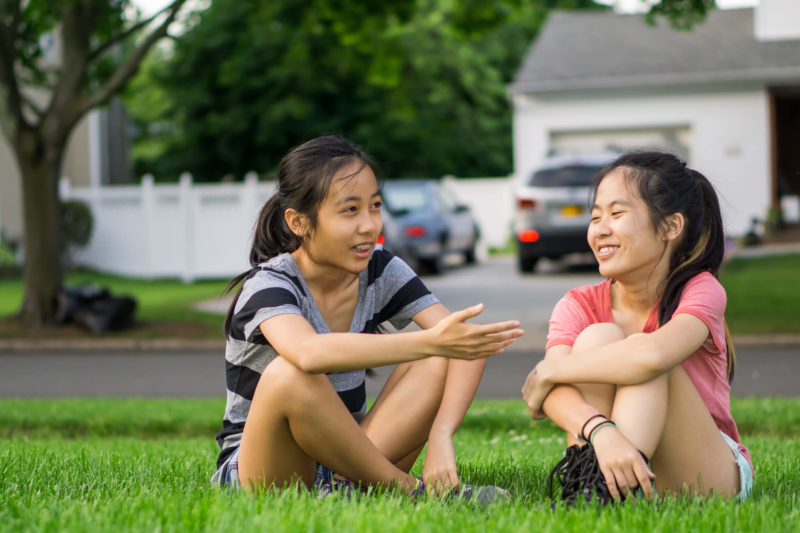
by Jocelyn Markowicz, PhD, Psychologist, in San Diego, CA
Support Is the Best Anti-bullying Tool. We Need You!
Hate crimes and bullying are on the rise. In response to a recent uptake in anti-Asian hate crimes, Gemma Chan (actress from Crazy Rich Asians) asked people to “spread awareness, check in on your Asian friends because we are not okay, educate yourself and others on the long history of anti-Asian racism, and please don’t be silent.” In her powerful words, she laid out the most powerful anti-bullying tool: support.
In order to be a powerful supporter, one must first be educated.
Education Is Prevention
Prevention is a key line of defense. Childhood development can be our battleground; it’s vital to prevent the development of bullies who victimize in their youth and engage in hate crimes as adults. Victims of bullying that feel powerless, lack support, and have difficulty coping with their trauma are at risk for suicidal behaviors (Ybarra et al., 2014). Reading is a powerful way to educate our youth about biases and differences that can impact individual decisions to engage in bullying and hate crimes. There are wonderful anti-bullying books that continue to help educate our youth towards this end. Here are several books that are great anti-bullying resources for our youth:
My Footprints by Bao Phi; Stick and Stone by Beth Ferry and Tom Lichenheld; My Name is Bilal by Asma Mobin-Uddin; Stand Tall by Molly Lou Melon; Inside Out & Back Again by Thanhha Lai; Fred Korematsu Speaks Up by Laura Atkins and Stan Yogi; It Began with a Page by Kyo Maclear and Julie Morstad; and The Myth of the Model Minority by Rosalind S. Chou and Joe R. Feagin.
Part of the anti-bullying education process is to illuminate the negative impact of bullying on victims.
Effects That Bullying Can Have on an Individual’s Mental Health
Bullying can impact school achievement. A recent study conducted in Turkey indicated that school belonging was positively associated with school achievement (Gokmen, 2021). Gokmen (2021) also found that lower school belongingness associated with the impact of bullying negatively affected school achievement. Poor academic performance is associated with poorer mental health. A recent meta-analysis determined that peer victimization is associated with later suicidal ideation (van Geel, Goemans, Zwaanswijk, & Vedder, 2021). Children who are victims can begin to victimize themselves in response to declining mental health. Nationwide, schools have implemented programs to combat the development of bullying in children.
We need to empower our communities with the understanding that supporting a victim of bullying is incredibly powerful. Supportive friends, family members, teachers, and peers can make all the difference for someone who is being bullied. Victims of bullying and hate crimes are begging supporters not to be silent, as Gemma Chan pleaded in the cause against anti-Asian violence. Often people are silent because they do not know how to help, not because they are unaware or do not care. But knowing that active support can make a difference is emboldening. Support is a powerful tool. Support is action.
Action steps You Can Take to Support Victims and Their Psychological Well-Being
1. Speak up.
Do not be silent. Say something to the person who is being harmed. One question can ignite positive change: “Are you okay?” Or “How can I help?” Say something to an authority figure (i.e., teacher, principal, parent, law enforcement, supervisor) who may be able to help the victim.
2. Spread awareness.
Take the actions that you can take. Raising awareness of bullying and hate crimes can have preventative and reactive results — helping people recognize bullying and hate, equipping them with ideas about what to do and how to help, and building a culture that doesn’t consider meanness, cruelty, hate, or intimidation as options. Offer resources that you are aware of, such as
- https://www.stopbullying.gov
- https://www.cybersmile.org
- National Suicide Prevention Lifeline 800-273-8255
- Provide information on finding a mental health provider through GoodTherapy.org or their local health insurance website.
3. Check in.
Successful support includes follow-through. Periodically check in with the bullying victim to see if any additional help is needed. Routinely checking in with a victim reminds them that they are not alone and encourages them to keep fighting through their battle to heal. Also, check in on community systems that are in place to reduce bullying and hate crimes to monitor bullying intervention strategies and outcomes. Routinely checking in with systems designed to prevent harm fosters accountability, which increases systemic success. Your support has power.
The Importance of Support
Often, support can seem like such a small, inconsequential thing. But support allows others to intervene on your behalf, enables you to counteract the lies bullying and hate tell about their victims, and empowers people to stand up for themselves. A recent study indicated that students who perceived greater adult support, along with other contextual factors, predicted increased intervention behaviors against bullying (Konishi, Hymel, Wong, & Waterhouse, 2021). In essence, support from others predicted engagement in bullying intervention behaviors. Support, not perfection, is a crucial anti-bullying and hate crime tool.
The wounds from bullying can be deep. A therapist can be an excellent addition to a bullying victim’s support team. Start the search for a therapist for yourself or someone you care about today.
References
Gokmen, A. (2021). School bullying and youth internalizing and externalizing behaviors: Do school belonging and school achievement matter? International Journal of Mental Health and Addiction.
Ybarra, M., Espelage, D. L., & Mitchell, K. J. (2014). Differentiating youth who are bullied from other victims of peer-aggression: The importance of differential power and repetition. Journal of Adolescent Health, 55 (2), 293–300.
Konishi, Chiaki, Hymel, Shelley, Wong, Tracy K.Y. , & Waterhouse, Terry (2021). School climate and bystander responses to bullying. Psychology in the Schools. https://doi.org/10.1002/pits.22512
Rappler.com. Celebrities Call to #StopAsianHate Folllowing Wave of Violence Against Asian-Americans. http://www.rappler.com-Celebrities-call-to-stop-asian-hate-following-violence-against-asian-americans (March 18, 2021).
© Copyright 2021 GoodTherapy.org. All rights reserved. Permission to publish granted by Jocelyn Markowicz, PhD, Psychologist, in San Diego, CA
